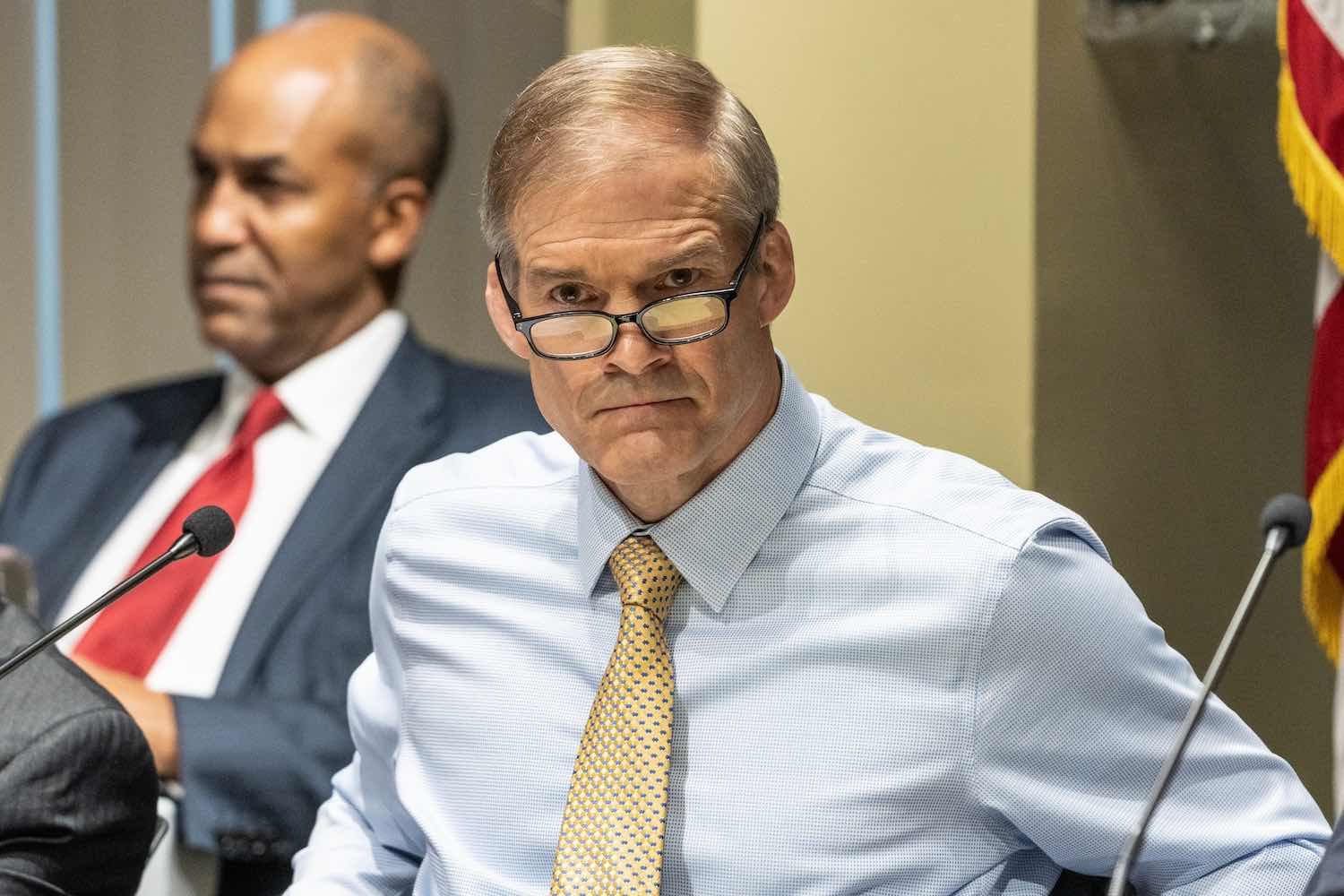Even amidst the short-term turmoil of turbulent markets, ongoing war in Ukraine, and political attacks against ESG, responsible investors in 2022 deepened their focus on climate change and racial justice, both of which pose critical systemic risks that will profoundly shape long-term shareholder value creation. But filing groundbreaking shareholder resolutions and leading campaigns to vote against irresponsible directors are only one piece of the puzzle: the success of these efforts depends on how the largest asset managers use the outsized shareholder voting power entrusted to them by their clients.
With BlackRock, Vanguard, and State Street voting 25% of shares across the S&P 500, responsible investors are wise to interrogate how large asset managers are supporting — or thwarting — their efforts to drive boardroom accountability on these systemically important issues.
Widening climate divide between investor leaders and the largest asset managers
2021 was a breakthrough year for investor action on climate risk. Multiple shareholder resolutions calling for oil and gas companies to set comprehensive greenhouse gas (GHG) reduction targets reached majority support. Three new directors were elected to the board of ExxonMobil from Engine No 1’s dissident director slate. Majority Action’s Proxy Voting for a 1.5°C World initiative saw support for directors in climate-critical industries fall across the board, as a critical mass of investors began systematically holding directors accountable for failure to meet basic corporate climate governance.
Going into the 2022 shareholder season, many systemically important companies moved to defuse escalating investor concern. According to the 2022 Climate Action 100+ Net Zero Company Benchmark, nearly all of the most systemically significant corporate contributors to climate change provide climate disclosures fully or partially aligned with the Task Force for Climate-Related Financial Disclosures (TCFD). Most have set some form of “net zero aspiration” across some or all of their emissions.
However, almost none have set comprehensive targets — including scope 3 emissions — in line with 1.5°C pathways, let alone aligned their investment plans or policy influence activities with such targets. There is little “low hanging fruit” left on climate risks. Companies now face the hard realities, and difficult choices, that will arise as they face rapid decarbonization and the energy transition.
In the face of this, investor leaders in 2022 aimed to build on the progress from the previous year with even bolder initiatives. Leading investors, with AUM totaling $8 trillion, upgraded their proxy voting policies to hold directors accountable at companies with material climate failings. Investors began pre-declaring their intention to vote against directors on the basis of climate risks, providing an important signal to companies and other investors. Critical resolutions at oil and gas majors and banks called for targets and financing strategies to be directly aligned with the goals and demands of the Paris Agreement. And the world’s largest investor initiative on climate change, Climate Action 100+, flagged an unprecedented 11 director ‘no’ votes at six focus companies, including Chevron, Berkshire Hathaway, NextEra Energy, and The Southern Company.
Despite this unprecedented leadership from responsible investors, these vote results largely failed to match the breakthrough victories of 2021. The boldest climate resolutions on record garnered more support than ever, but failed to achieve majority support. At the same time, opposition to incumbent directors at climate-recalcitrant companies grew modestly, continuing a multi-year trend. Majority Action recommended investors oppose 47 directors at 25 companies with strategies that demonstrably failed to align to 1.5°C pathways. On average, support for these directors fell by 1.8 percentage points from their most recent prior election and 42 directors received less than 95% support from shareholders, placing them in the bottom quartile of support for directors in the S&P 500 thus far in 2022, according to data from Insightia. Eight received less than 90% support from shareholders.
What explains these challenging outcomes? It appears that while leading investors were stepping up their ambition in line with the escalating risks of climate change, the largest asset managers returned to backing business-as-usual at the most climate-critical laggards. Despite the escalating risks that climate change poses to their clients, all of the “Big Three” asset managers’ 2022 proxy voting policies set their accountability standards at a level that nearly every major important emitter could already meet – and well below what is needed to limit warming to 1.5°C.
BlackRock and Vanguard appear to have voted against ambitious action on climate risks, remaining focused instead on issues of disclosure rather than the transformation in operations and strategy required to manage the energy transition. Similarly, State Street indicated it would vote against directors on the basis of climate change in 2022 if companies failed to disclose GHG reduction targets – but made no requirement such targets need be aligned with an actual Paris-aligned decarbonization trajectory.
Large asset managers claim that their approach is designed to maximize shareholder value at these companies. But the hard reality is that large emitters’ irresponsible actions pose systemic threats to the clients’ entire diversified portfolios, as well as the stability of the global financial system itself.
Racial equity audits break through, but the scale of impact was limited by large asset managers
The racial justice uprisings of 2020 brought the harms and risks of persistent systemic racism into sharp focus for institutional investors, leading to a major surge in shareholder efforts to hold boards accountable to racial equity outcomes in 2021. Seven shareholder proposals that year at companies including Amazon and JPMorgan Chase called for long-overdue comprehensive auditing of the racial equity impact of corporate policies and practices. While these proposals received unprecedented shareholder support, two of the largest asset managers — Fidelity and Vanguard — failed to back every one of these proposals. State Street joined them in voting against the proposal at JPMorgan and several others. As Majority Action and SEIU demonstrated, the proposals at Amazon and JPMorgan Chase would have received majority support had these largest asset managers voted in favor.
Similarly, proposals at 15 S&P 500 companies calling for enhanced disclosure and oversight of political spending and lobbying would have received majority support but for large asset manager votes against them, a bewildering outcome given that many of these corporations were known to have backed elected officials behind 2021 state-level voter suppression efforts and/or the January 6th Capitol Insurrection.
The 2022 shareholder season saw a continued upsurge in demand from leading investors for board oversight and accountability on topics critical to addressing systemic racism. Shareholders filed dozens of racial equity audit proposals – and this time, many of these secured majority support, including at McDonald’s, Apple, Johnson & Johnson. One notable victory was a majority vote calling for a racial equity audit at The Home Depot, following an outcry over the company’s refusal to speak out against voter suppression legislation in its home state of Georgia – and its ongoing support for the elected officials backing it.
Investor escalation on topics related to racial equity and justice was not limited to shareholder proposals. The New York City and State pension funds, for example, launched a campaign to vote against two directors at Amazon after that board’s failure to provide proper oversight and respond adequately to investor concerns about frontline worker safety and rights. And Majority Action and Investor Advocates for Social Justice (IASJ) drove efforts to withhold support for four directors at The Wendy’s Company after the fast food giant failed to adequately implement a majority vote proposal from 2021 addressing modern slavery in its agricultural supply chain.
Support for key directors fell to new lows, if short of majority votes against the named directors. Judith McGrath, Chair of the Leadership Development and Compensation Committee at Amazon, received support from only 78% of shares voted, placing her in the bottom 3% of directors in the S&P 500, according to data from Insightia. Peter Rothschild, Chair of the Nominating and Corporate Governance Committee at Wendy’s, received support from just 87% of shares voted, placing his support in the bottom 10% of directors at S&P MidCap 400 companies.
The critical driver of these outcomes? Here again, we must look to the swing voting power of the largest asset managers, which cut both ways on racial justice this season. On the one hand, the early March majority vote breakthrough at Apple on a civil rights audit could only have been achieved with the backing of key large asset managers. Following that vote, companies like JPMorgan Chase, Pfizer, and Verizon settled racial equity audit proposals with proponents, lest they risk losing these votes outright. Even Amazon agreed to conduct a limited racial equity audit just weeks prior to a planned shareholder vote; however, that audit was limited in scope.
On the other hand, many more key racial justice votes would likely have reached majority support but for the votes of just one or two of the largest asset managers. A near majority of voting shareholders at Chevron backed a racial equity audit proposal, but BlackRock, holding 6.5% of common shares outstanding, voted against it. Similarly, a proposal calling on AT&T to explain how its contributions to elected officials backing voter suppression efforts were congruent with the company’s commitment to “overcoming systemic barriers and ensuring civil rights for all people” received 45% support, likely indicating that votes from just one or two of the largest asset managers held it back from receiving majority support.
Amid backlash, responsible investors must remain vigilant to mitigate systemic risks
Responsible investors have a lot to be proud of from the 2022 shareholder season, as efforts to both demand decisive action from systemically important companies and escalate when boards proved recalcitrant garnered unprecedented levels of support. The backlash coming from political forces seeking to maintain the status quo of both systemic racism and the fossil fuel economy just further illustrates how critical this work really is: if it didn’t matter, they wouldn’t be fighting it. The goal of the coordinated anti-ESG campaign is not investor protection but rather to have a chilling effect on responsible investment and proxy voting overall. Indeed the mitigation of systemic risks posed by climate change and racial injustice require more bold action, not less.
Against this backdrop, responsible investors will need to remain vigilant with both corporate boards and large asset managers in order to mitigate these systemic risks. Shareholders will need to ensure they set and communicate clear expectations for boards to demand climate action in line with a 1.5°C future, and hold boards accountable to actually implementing the racial equity audits that won majority support or settlements in the 2022 shareholder voting season. And once the data on how large asset managers voted 2022 is public at the end of August, responsible asset owners will have an opportunity to hold their fund managers accountable for their voting performance in 2022, and demand that they upgrade their policies to back these efforts in 2023 and beyond.
If responsible investors remain focused, our growing efforts to hold boards accountable on critical systemic risks will confirm the old adage: first they ignore you, then they laugh at you, then they fight you, and then: you win.
Eli Kasargod-Staub is Co-Founder at Majority Action.











